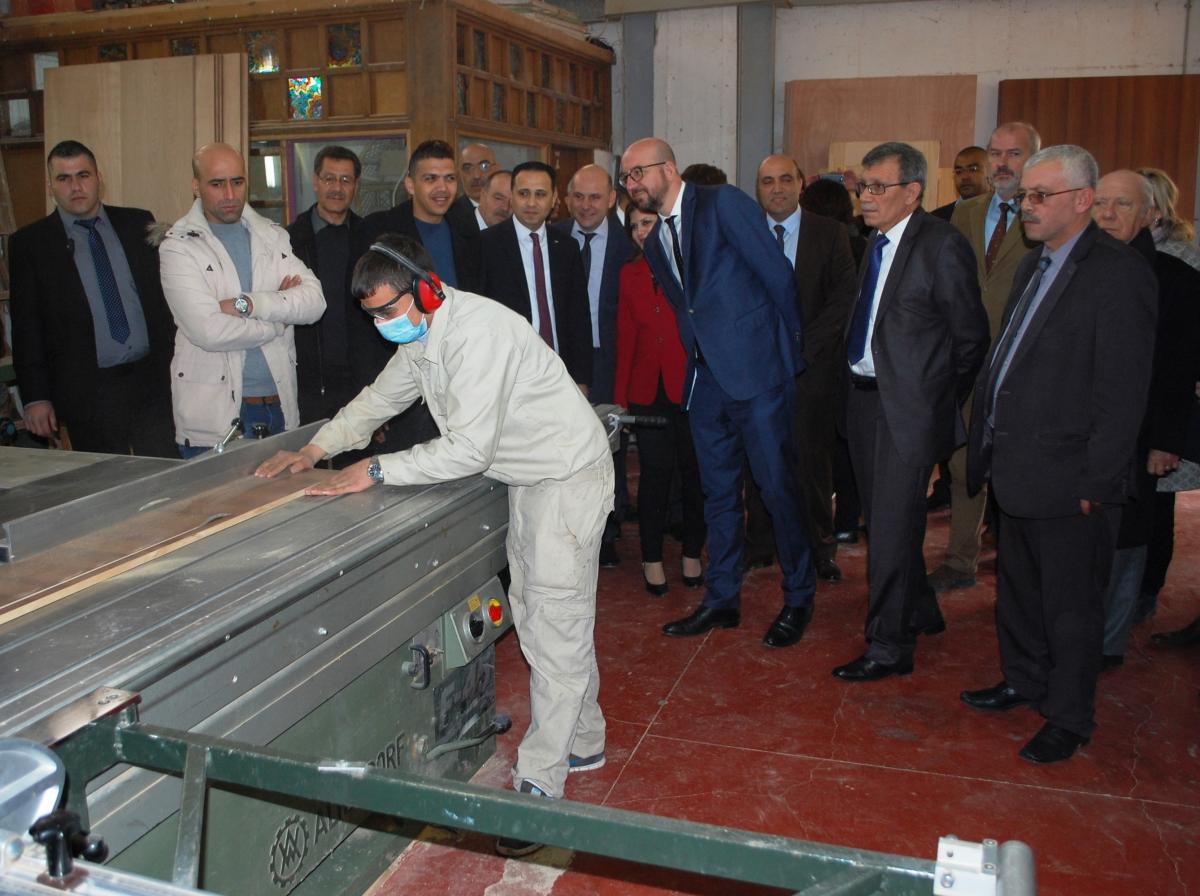Prime Minister of Belgium visits YMCA Jericho
The first week
of February, the prime minister of Belgium – Charles Michel – made an official
visit to the Palestinian Territory. As part of his trip, he has visited the
Work Based Learning project of the Belgian Development Cooperation in the YMCA
in Jericho.
The YMCA in
Jericho has been founded in 1952, as a branch of the YMCA in Jerusalem. It is a
training centre that especially focuses on marginalised youth from the refugee
camps and other disadvantaged areas in the West Bank. The scope of the centre
is to offer a vocational training to these young people – providing them with
enough skills to find a job afterwards.
The centre
focuses specifically on orphans, youth coming from disadvantaged families and
backgrounds, traumatized children or people with special needs. Currently the
centre counts 35 teachers and 300 students, among which around 50 girls.
The centre
offers a wide range of professional training courses, including accounting,
cooking, ICT, construction works etc. The courses consist of two parts, for a
total of two years. The theoretical part of the training takes place in the
YMCA and lasts for 11 months. The second part, the practical training takes
place inside the private sector, and lasts for 7 months.
The Belgian
Development Cooperation has supported the YMCA since 2008. A first project
helped the centre to acquire 80 beds, as to allow the students coming from
remote areas to sleep inside the training centre. Furthermore, thanks to the
Belgian Development Cooperation, the centre could acquire 15 new computers, now
in use as an ICT classroom for the students.
More recently,
the centre has been selected for the Work Based Learning Fund in order to optimise
their system of training in the private sector. Research has shown that training
in private companies drastically enhances their chances to find a job
afterwards. Up to 80% of the students find a job within a year.
Currently, the
fund only supports the students who follow the cooking school, but in the
future this fund can also cover other professions. The funds help the YMCA to
cover the transportation fees of the students going back and forth to the
private sector organisations, to buy uniforms for them, to give them a work
insurance, buy the tools and raw materials they need during their training etc.
Furthermore, a
specific coaching mechanism has been put in place for the teachers and trainers
that accompany the students during their
time in the private sector and do the follow-up of their training period.
Latest news from this project
No news

